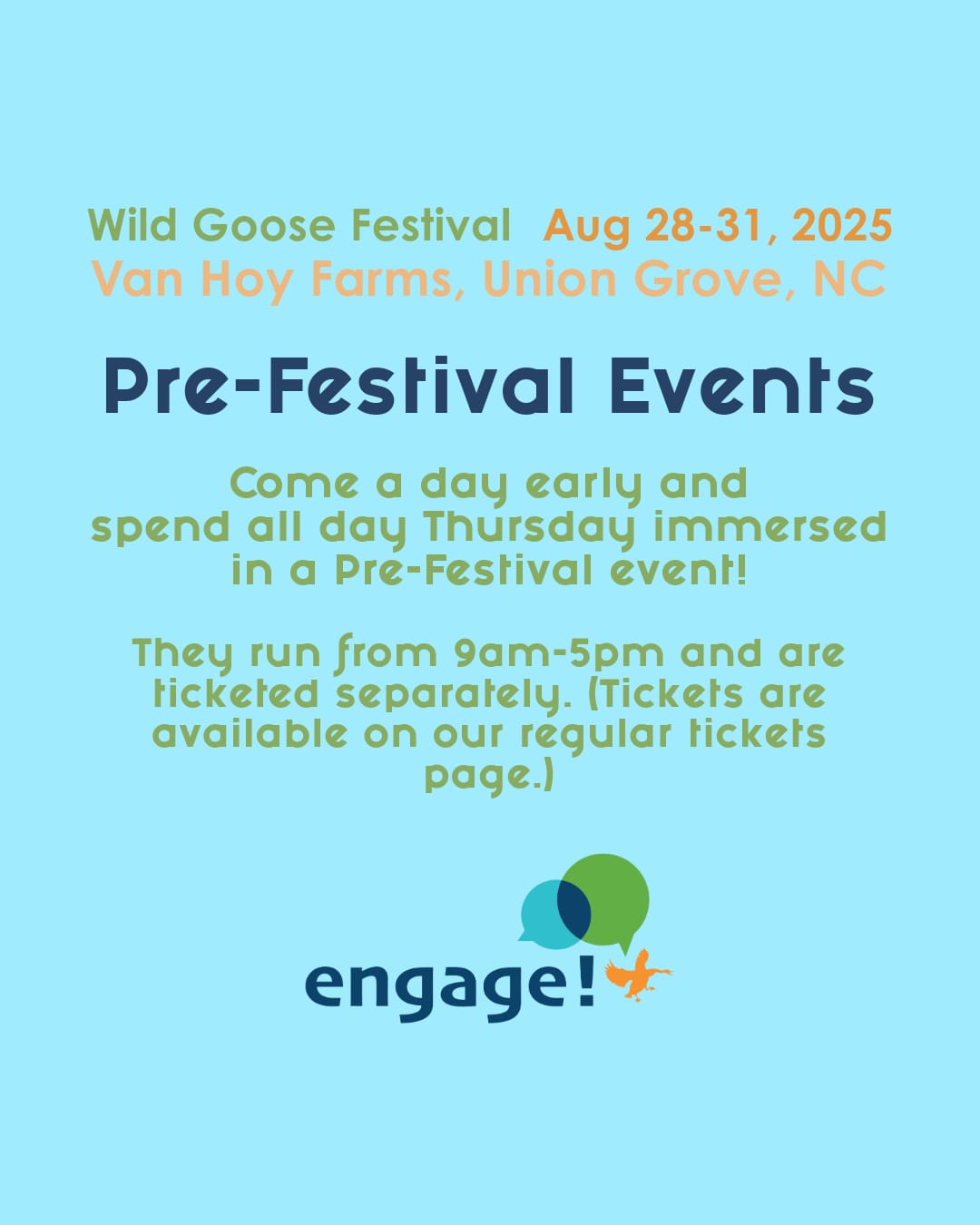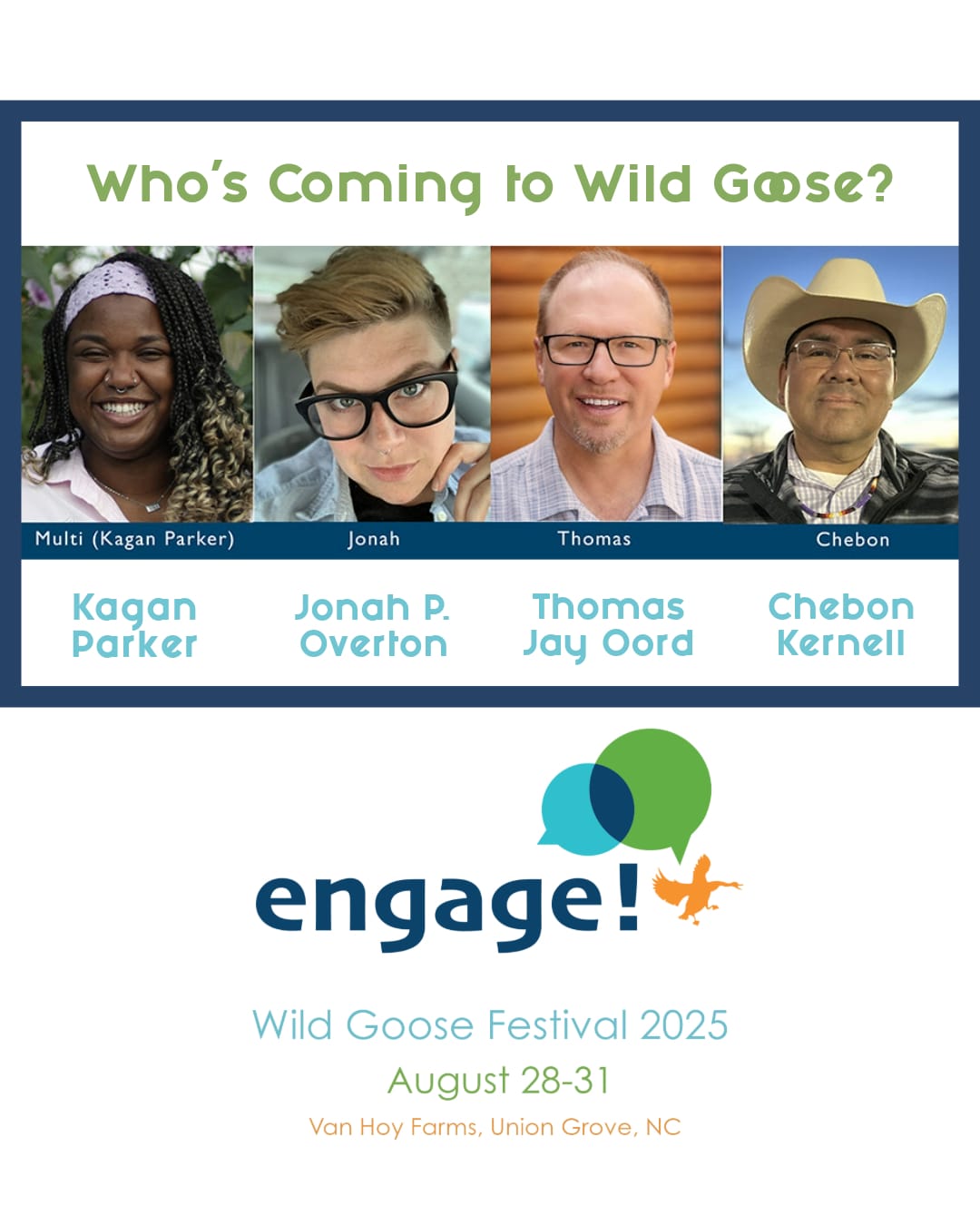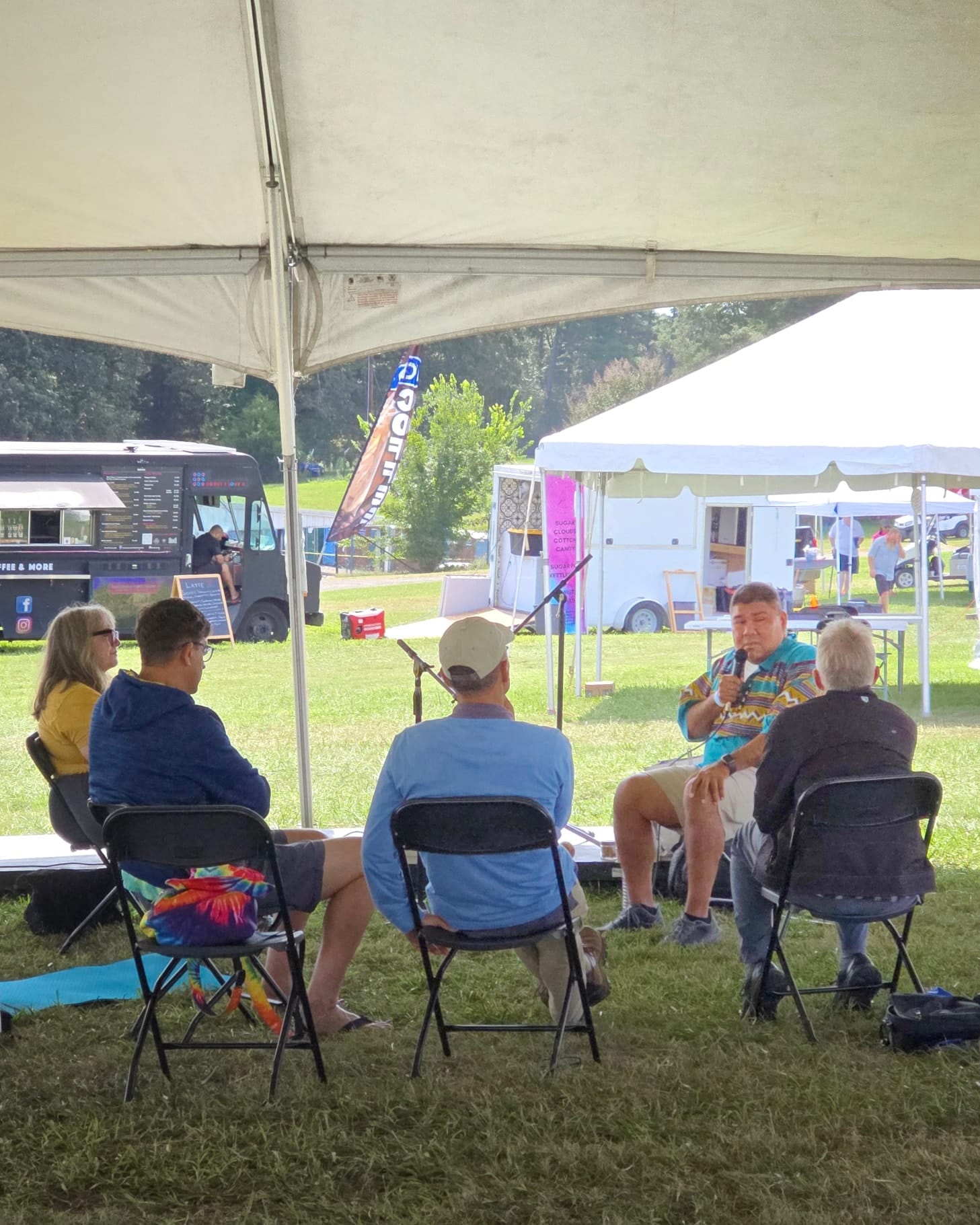Wild Goose Festival 2025 #2
On NOT preaching with the Bible in one hand and the newspaper in the other. A review of the pre-festival day at Wild Goose 2025.

Cosmos moment: New moon. Sun slow (clock behind sun). September equinox.
Preaching the dharma and god
It’s tempting to comment on current events that might seem relevant to loving god in one way or another. In fact, Karl Barth, a Christian theologian, said, “Preach with your Bible in one hand and the newspaper in the other hand.”
The teachers I follow, primarily the Christ and the Buddha, tended not to do that. Love god and love the dharma are their respective core messages. Don’t get caught in the ways of the world, they both say. Follow The Way instead.
So I don’t comment on the latest madness plaguing our society of spectacle, not unless I feel I have something worth saying and something worth doing about a particular event or development. Loving god and loving the dharma are more than enough for us to discuss and to pursue.
Indigenous wisdom and the mission of humanity
The madness of climate change caused by human activity, however, is different. That’s an ongoing madness that threatens all life. Renewing indigenous wisdom is vital to our survival. Many indigenous people embody a reciprocal relationship with the earth: the earth takes care of us, we take care of the earth. Put another way, what we do to the land, we do ourselves. We are the land.
What are we doing to the earth? We are polluting it on a massive scale. So we are polluting ourselves. And the average global temperature is rising every year.

Thomas Berry, a Catholic priest and writer, put it this way.
“In the 20th century the glory of the human has become the desolation of the earth. The desolation of the Earth is becoming the destiny of the human. All human institutions, professions, programs, and activities must now be judged primarily by the extent to which they inhibit, ignore, or foster a mutually enhancing human-Earth relationship.”
He proposes a mission for all of humanity, “The Great Work” as he calls it.
“The historical mission of our times is to re-invent the human at the species level … by means of story and shared dream experience.”
I think part of the reinvention of humanity includes rediscovering indigenous wisdom to cultivate a human-earth relationship that enhances humanity and the earth. Needless to say, I am attuned to opportunities to learn from native peoples and to connect with them whenever possible.
Wild Goose 2025 day 1: pre-festival sessions
The last couple of years, I caught Chebon Kernell, a spiritual leader of Muscogee Creek and Seminole heritage, at his 1-hour session on the first festival day, Friday. This year I was at a day-long session with him on Thursday, the pre-festival day.

Chebon is not only a spiritual leader (Mekko) in his own tradition. He is also the Executive Director of the Native American Comprehensive Plan of The United Methodist Church. This puts him in a unique position to bridge wisdom traditions that have been in conflict, and to bring indigenous understandings of reciprocity to wider audiences. Here are highlights of his sessions from my limited perspective.
Note: In describing my experiences of Chebon’s sessions, I am using my own words and relying on my own recollections. I am not claiming to speak for him or to remember the precise wording of his presentations. Any deficiency in wording or any confusion in meaning is my fault. : )
Each time I have seen Chebon at Wild Goose, he has begun the same way: making a gift offering to earth mother. One year, he planted a small seed in the earth that supported us. This year he placed a piece of tobacco leaf in the earth at our venue.
The Goose (as regulars call it) is an outdoor festival, so it’s easy to commune with nature, if that’s part of your routine.
Making an offering to earth mother, he says, is an act of remembering all the earth does for us, and what we need to do for her, namely serve her and preserve her, same as Genesis 2 instructs us to do. And this was the topic of his all-day session:
Ancient Wisdom in a Modern World: Recognizing Spirituality in Early Christianity while Honoring the Spirituality of Indigenous Cultures

He has also said that to really reciprocate the earth’s care, festival planners should visit the grounds a few months prior to the event. They should listen to the creatures there and the earth itself, and see if a festival will be welcome there.
Our group was small, and small was beautiful that day. As Chebon said, he was not so concerned with the number of people we could see who were present. There could well be many spirit beings present for all we knew. (His session on Friday, BTW, was full – around 60 people attended.)
Chebon told us his story, growing up in a Muskogee family who bridged two worlds at least: modern-day USA including high school football and the Methodist church, plus indigenous culture, including reciprocity with earth mother and native ball game (precursor of lacrosse).
His presentation focused on his studies and his introduction to scholars who were leading figures in the Jesus Seminar, part of Westar Institute. Chebon was surprised by their work – questioning the common understanding of the gospels and rediscovering the life of the historical Jesus. They invited him to get involved.
So it was that Chebon joined the editorial council of A New New Testament: A Bible for the 21st Century Combining Traditional and Newly Discovered Texts. This is the kind of project that fundamentalists (aka evangelicals) love to decry. But accepting tradition without evaluating it is risky. Imagine if the Buddha or the Christ had accepted Hinduism and Judaism as is.

Chebon also told us stories of his family and ways they bridged indigenous and Christian spirituality.
- Chebon related how his grandmother chose to join the Methodist church, not as a replacement of her family tradition, but as a supplement to it.
- He told us about his choice to follow his grandmother’s example, belonging to two faith traditions, doing as much as he can to revive and preserve his Muskogee heritage.
- And he spoke about the comfort he found in the wisdom of A New New Testament, a comfort he extended to his father in his final days.
Participants contributed all along the way with questions, reflections, and stories of our own.
To end, Chebon invited us to dance a traditional dance. We accepted! It was a beautiful dance of ancient inspirations and modern aspirations.
Prayer for a shared soul
Spending a day with someone – in our case, with several people – hearing and sharing spiritual experiences gives us a shared consciousness, a shared soul.
May we cultivate new connections that heal old divides. May we see the great dance of wisdom traditions in the mind of god. May we reinvent ourselves through new stories and healing dreams. May we inhabit a shared soul.
My festival family
Meanwhile, my wife and aunt were at a different all-day session: Radical Mysticism. I invited my wife to write a review of the festival. Let’s see if she’ll oblige.
Happy Rosh Hashanah, Jewish New Year!

Comments ()